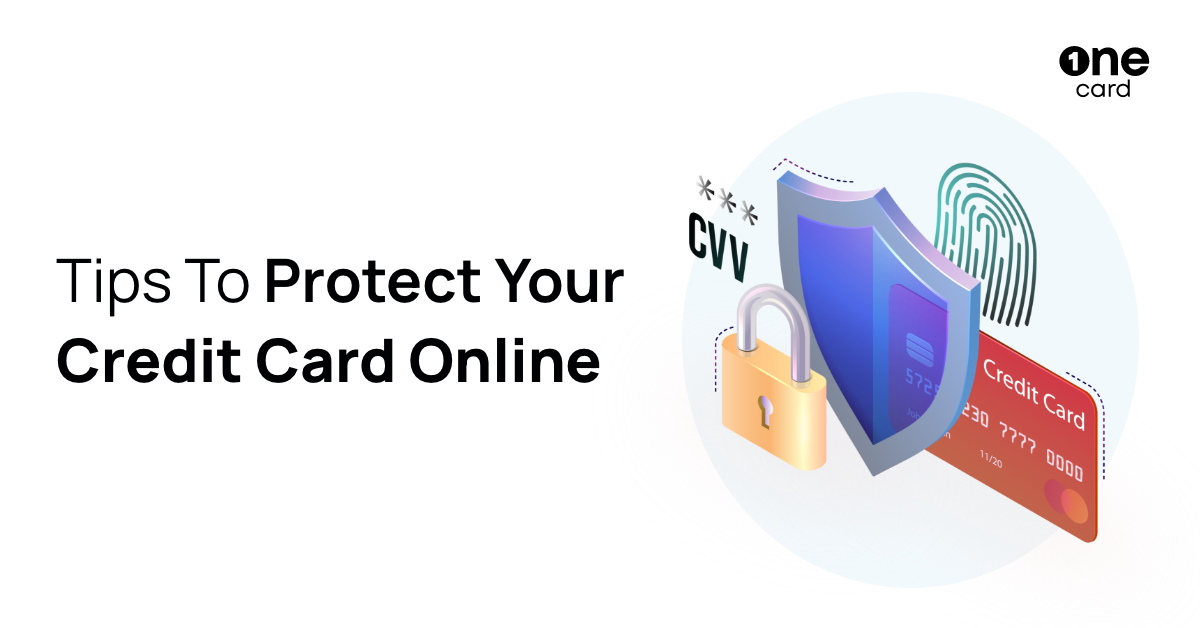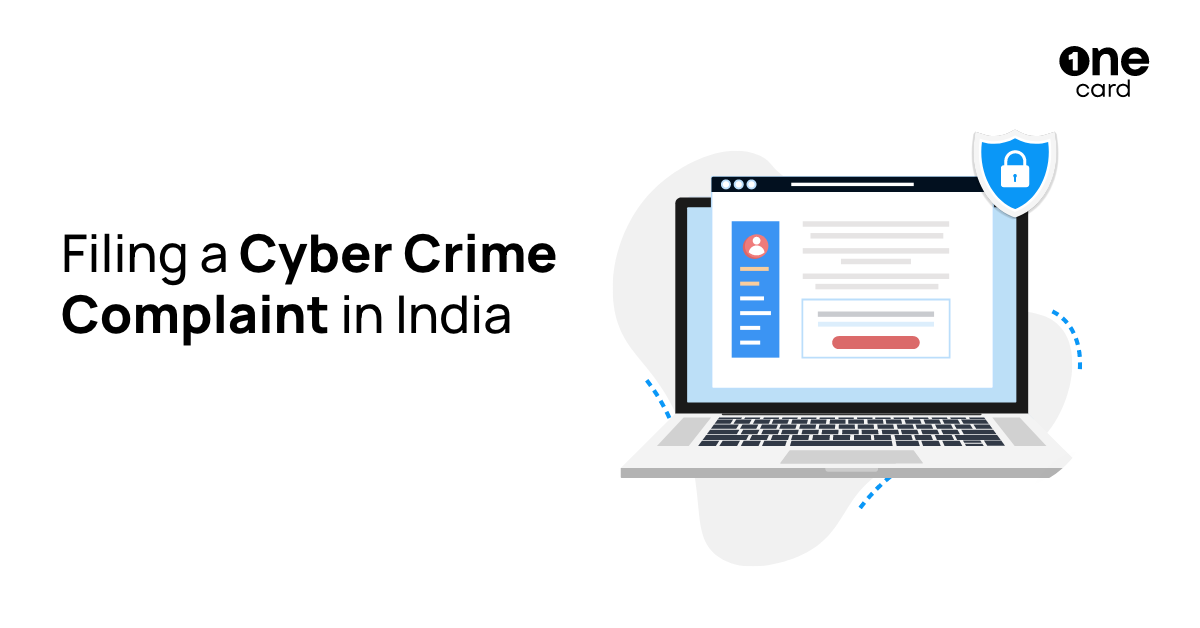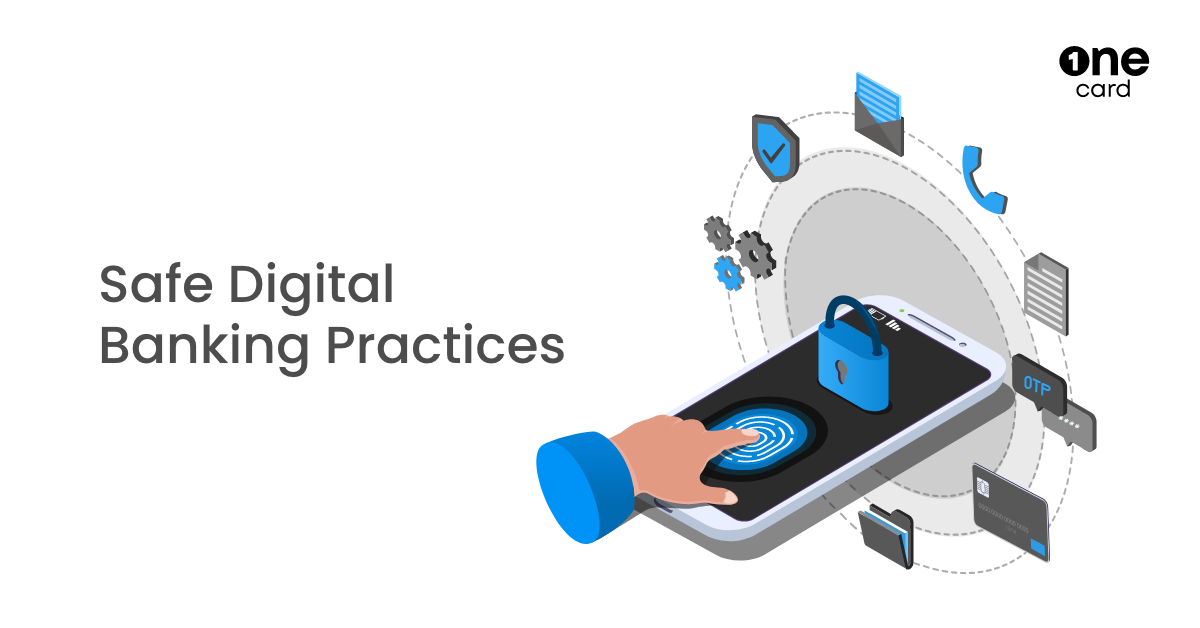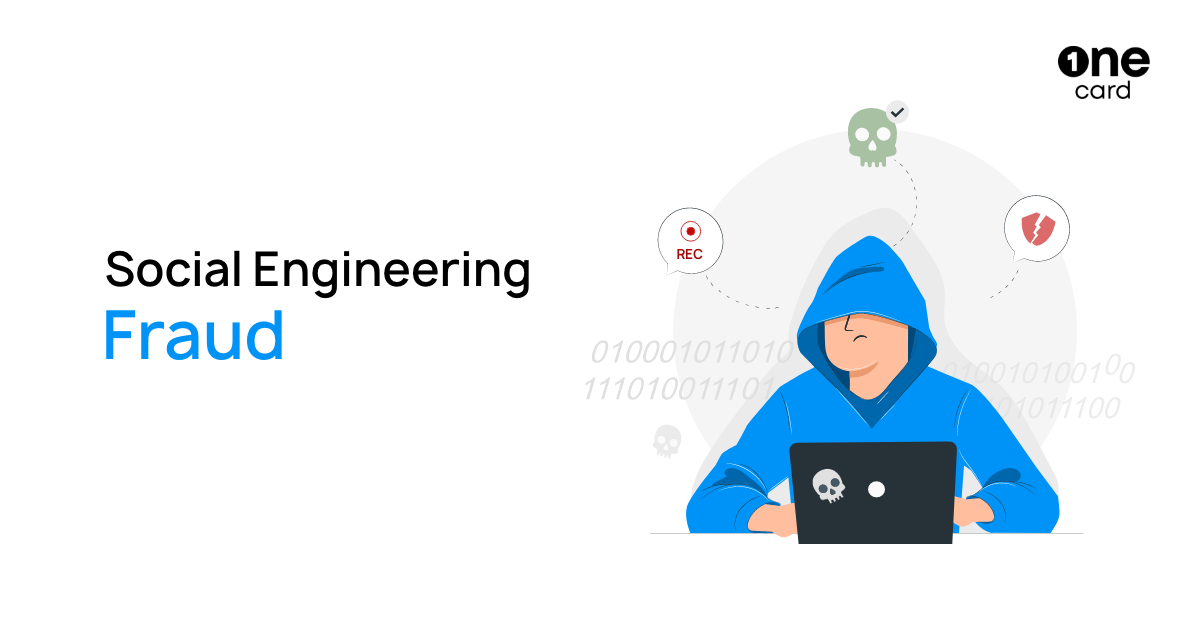How To Protect Your Credit Card Information Online
By OneCard | July 14, 2023

Rajesh, a diligent credit card user, has been hearing about an increase in online fraud cases. Although he loves the convenience of online shopping, he wants to ensure his credit card information remains safe and secure. He tries to take all precautionary measures to protect his credit card when making online transactions. You may relate to Rajesh and have similar concerns about the security of your financial information in the digital realm. To help you, we are listing some tips that you can incorporate into your credit card routine to have peace of mind while enjoying the convenience of your credit card online.
How To Protect Your Credit Card Information Online
Create a Strong and Unique Password
Creating strong and unique passwords is essential to protecting your credit card online. It makes accessing your credit card information harder for hackers. Don’t settle for common or easily guessable passwords like “123456” or “password.” Instead, combine uppercase and lowercase letters, numbers, and symbols to make your password more secure. For example, a strong password could be something like “P@ssw0rd!#”.
Enable Two-Factor Authentication (2FA)
Adding an extra layer of security to your online transactions is crucial. One effective method is to enable Two-Factor Authentication (2FA) whenever possible. With 2FA, even if someone obtains your password, they would need a second factor, such as a One-Time-Password (OTP), to gain access. Many services offer 2FA options to enhance the security of your credit card information.
Shop on Secure Websites
Shopping on secure websites is essential for online purchases. Stick to reputable online stores that have secure connections. Look for the padlock icon in your browser’s address bar and ensure the website’s URL starts with “https://” instead of just “http://”. The “s” in “https://” indicates that the connection is encrypted, providing a safer environment for entering your credit card information. Always double-check the URL before purchasing to ensure you’re on a legitimate and secure website.
Beware of Phishing Attempts
Phishing attempts are common online scams that trick you into revealing your credit card details. Be vigilant and cautious when receiving emails, messages, or calls that ask for your credit card information. Avoid clicking on suspicious links or providing personal information without verifying the authenticity of the source.
For example, be wary of emails that appear to be from your bank or a reputable company asking you to update your credit card information on a website that seems suspicious. Legitimate organisations will never ask for such sensitive information via email or other insecure channels.
Also Read : How to Stay Safe from Spear Phishing?
Use Trusted Payment Methods
Opt for trusted and secure payment methods when making online purchases. Many online platforms offer an extra layer of security by keeping your credit card details private. Payment platforms act as intermediaries, ensuring your sensitive information is not directly shared with the merchant. Using trusted payment methods reduces the risk of your credit card information falling into the wrong hands.
Regularly Monitor Your Statements
Keeping a close eye on your credit card statements is essential to detecting unauthorised transactions. Make it a habit to regularly review your statements and look for any unfamiliar charges. If you notice any suspicious activity or unauthorised charges, report them immediately to your credit card issuer. Promptly reporting discrepancies can help prevent further fraudulent activity and protect your credit card from unauthorised use.
Also Read : One Credit Card Statement: A Complete Guide
Set Up Transaction Notifications
Stay informed about your credit card activity by setting up transaction notifications. Most credit card providers offer app, email, or text alerts that notify you whenever a transaction is made using your credit card. By receiving real-time updates, you can quickly identify any unauthorised activity and take immediate action to address it. These notifications act as an early warning system, helping you maintain your credit card security.
Keep Your Software and Devices Updated
Regularly updating your devices and software is crucial for maintaining online security. Keep your operating system, web browsers, and antivirus software up to date with the latest security patches. Updates often include fixes for known vulnerabilities, making it harder for hackers to exploit weaknesses in your system. For example, regularly update your iPhone’s iOS or Android operating system to ensure you have the latest security enhancements.
Be Wary of Using Public Wi-Fi
Public Wi-Fi networks can be unsecure, making them risky for credit card transactions. Hackers can intercept your data while you’re connected to these networks. Avoid transactions while connected to public Wi-Fi to protect your credit card information. Instead, use a secure and private internet connection, such as your home network, or rely on your mobile data network when making online purchases. Using a trusted network reduces the risk of your credit card information being intercepted by malicious individuals on public Wi-Fi networks.
Final Words
Protecting your credit card online is crucial. By following these simple tips, you can ensure the security of your financial information while enjoying the convenience and benefits of online transactions. At OneCard , we have been transforming the credit consumption experience by providing a credit card that is backed by a powerful mobile app. The app lets you control all aspects of your credit card using just the app. Whether you want to change your app pin, enable or disable transactions, or lock or unlock your credit card, just open the app, go to ‘My Controls’ and you will be able to get it done.
**Disclaimer: The information provided in this webpage does not, and is not intended to, constitute any kind of advice; instead, all the information available here is for general informational purposes only. FPL Technologies Private Limited and the author shall not be responsible for any direct/indirect/damages/loss incurred by the reader for making any decision based on the contents and information. Please consult your advisor before making any decision.



Sharing is caring 😉